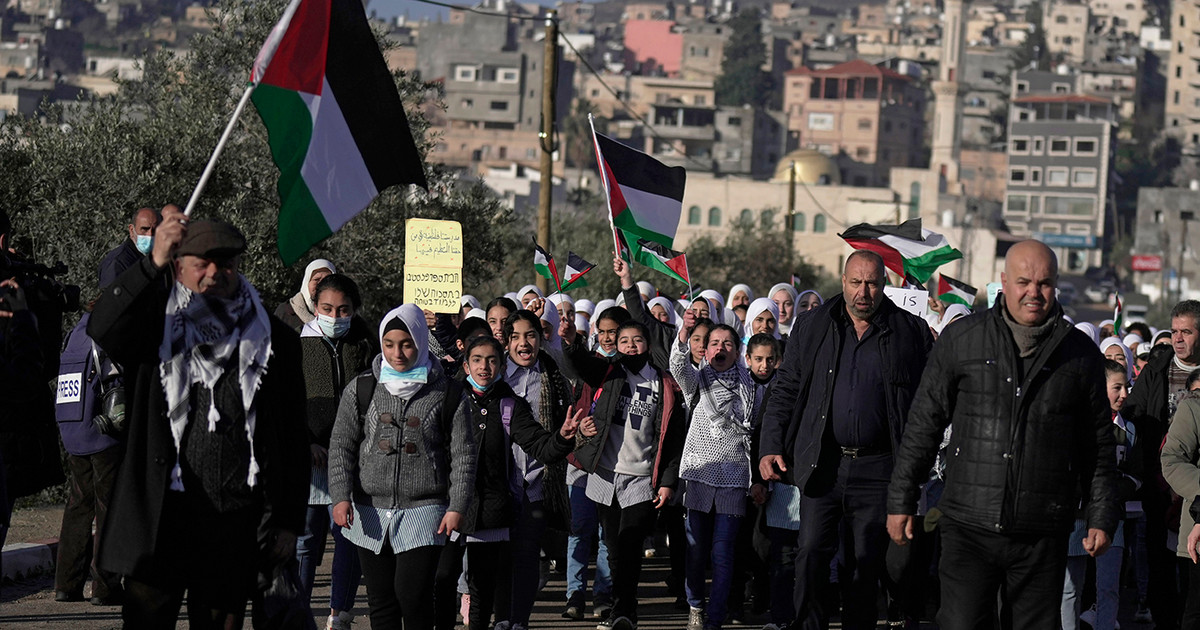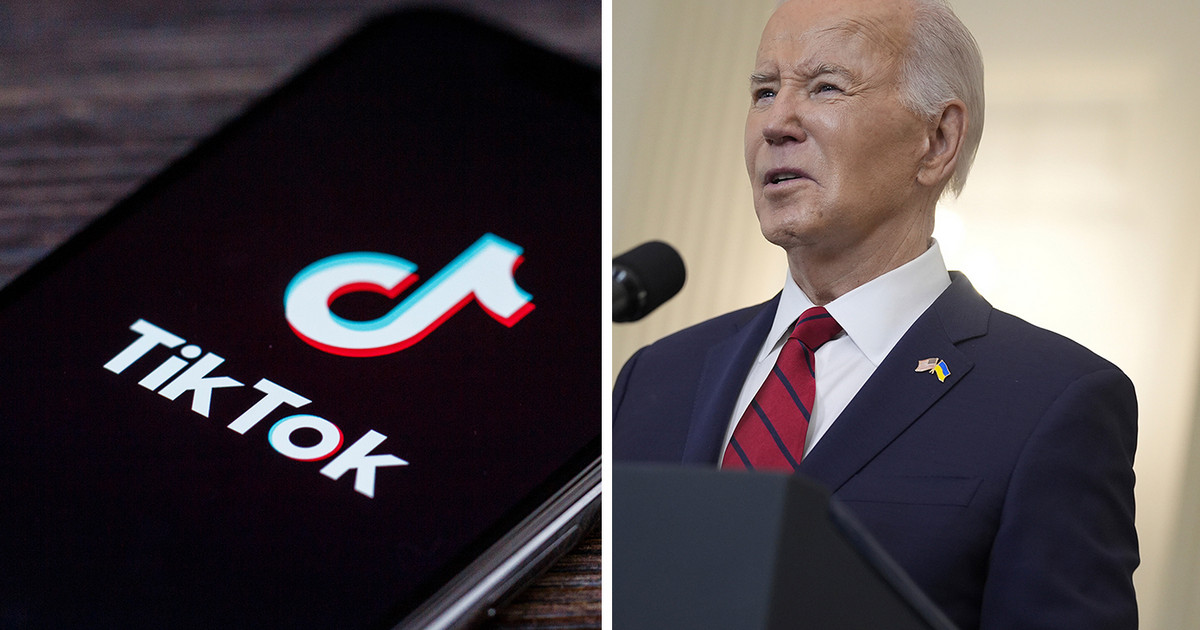The appearance of Algerian President Abdelmadjid Tebboune, Sunday, December 13, in a video posted on Twitter from his place of convalescence in Berlin, sparked a lot of reactions in Algeria and questions about the political future of the Tebboune presidency.
If the public television, excluded from the mission of retransmission of the appearance of the president hospitalized in Germany since October 28, published on its social networks the images of Algerians moved and happy to see their president again (the image of a girl kissing the TV screen which shows the president, for example), part of the opinion remained skeptical, doubting the credibility of the official message on the recovery of Mr. Tebboune. Others prefer humor or irony. Commenting live on Twitter on the president’s succinct speech, one Internet user wrote: “Uncle Tebboune, if you are taken hostage, wink! ”
Conspiracy theories and rumors
But beyond that, it is first of all the channel chosen by the president who questions. According to El Watan, “Twitter appears as a means of communication associated with a form of political democratization and transparency. It is also and above all a perfect tool for bypassing traditional media. The president’s choice, who preferred Twitter to EPTV [la télévision officielle], could be part of this perspective. Especially since the dissemination of images of a sick president via Algerian television would certainly recall the sad episodes of the images of his predecessor, Abdelaziz Bouteflika ”.
Algerians remember these images when Bouteflika welcomed, in 2013, in a dressing gown, his Prime Minister and his Chief of Staff at Les Invalides where he was following a period of convalescence after his stroke. “The president has a certified account which gives him quick and direct access to national and international opinion. Why always depend on the 8 p.m. mass? »Reacts an official source, which recalls that political communication has evolved around the world. “But when we adapt, we cry conspiracy”, continues this source.
Allusion made to the conspiratorial rumors which saturated the Algerian websphere before and after the appearance of the Head of State: “He was shot”, “the turtleneck hides connections to many medical devices”, “it is a video montage ”, etc. “However, this effort of institutional communication, very late in fact [après 46 jours d’absence du pays], will not prevent the persistence of doubts as to Tebboune’s return to business and his ability to continue his mandate “, underlines the editorial ofEl Watan.
The emergency: a new electoral law
However, the stake is really there and it is easily detected when the president declared in this same video: “I am daily, and sometimes hour by hour when necessary, what is happening in the country. And I give instructions to the presidency when necessary. »A way of neutralizing the calls of certain parties to apply the mechanisms of prevention for inability to govern.
And it is in this logic that “Mr. Tebboune reboots the political process”, to quote a source close to the presidential palace. This is not the opinion of Mohcine Belabbes, president of the RCD (opposition): “The speech of the Head of State is out of step with the country’s emergencies and the major concerns of fellow citizens. In fact, it worries instead of reassuring the population legitimately anxious by the uncertainty about the national future. ”
In his message, the president indicates that he “ordered the Presidency of the Republic to coordinate with the commission responsible for preparing the draft revision of the organic law relating to the electoral system so that the document in question is ready as soon as possible. , or in 10 to 15 days ”, with a view to“ launching the post-Constitution process ”. The revision of the electoral law has been part of the agenda drawn up for a year, at the start of Mr. Tebboune’s mandate. Revision which was to follow the constitutional reform and prepare legislative and local anticipated. The term of the current Parliament runs until May 2022, while the term of local assemblies ends in November 2022.
Convening of the electorate before December 31
The commission responsible for this revision is the same as the one responsible for constitutional reform. This reform was passed by a referendum on 1is Last November, a ballot which saw a historic record of abstention, with 23.72% of participation rate, and which was not commented on by the Head of State during his recent exit.
But will revising the electoral law be enough to inject new dynamics and credibility into the mechanisms of political representation? On paper, yes, according to the authorities. But some experts doubt it, such as the lawyer Amer Rekhila who, on the columns of the daily El Khabar, fears that “the revision of the Electoral Code is only superficial, leaving the electoral process subject to old logics”.
The difficult passage of the constitutional revision (which is waiting to be initialed by the president) has therefore apparently been quickly forgotten by several political parties which, from the announcements of Mr. Tebboune, began to prepare for the next elections .
The president of the Jil Jadid party (opposition), Soufiane Djilali, considered possible the convocation of the electorate before December 31. “It is not clear if the authorities want to start by organizing local elections before the legislative ones”, comments El Khabar, who leans for local anticipated for the beginning of the year 2021: “This will make it possible to get rid of dozens of local assemblies frozen and elected officials prosecuted, but also to hatch a new political elite and to integrate the president’s supporters into the political game. ”
Parties ready for early elections
But this option has limits: the local elected officials have too few prerogatives vis-à-vis the designated officials who are the heads of daïra and the walis (sub-prefects and prefects) who oversee them. During the elections of May 2012, the attempt to rejuvenate and renew the representation in the communal and wilayal assemblies failed because of these constraints.
But whatever the calendar of legislative and local anticipated, parties are preparing for these deadlines. The RND, the ruling party – whose former boss and ex-Prime Minister Ahmed Ouyahia is in prison while his successor at the head of this party, Azzedine Mihoubi, was recently questioned by the courts for a corruption case -, says he is ready to “enrich” the debate on the revision of the electoral law. Same availability at the MSP (current Muslim Brotherhood) while another Islamist party, El Islah, says “stand ready to serve the national interest”.
But for the FFS (historical opposition), “the intransigence of the authority to unilaterally impose its project against the will of the majority of the people constitutes a threat to the cohesion of society and contributes more to the emergence of institutions and bodies whose legitimacy will be contested and rejected by the people ”.
The oldest opposition party calls instead to “bring Algerians of all political affiliation together in a serious national dialogue to find serious solutions acceptable to the people is imperative, in order to protect Algeria from the dangers it faces and to build a strong state with legitimate institutions ”. “Basically, the whole difficulty for Mr. Tebboune’s new system is to manage to create a new partisan configuration, in such a short time, on the rubble of the old Bouteflika system”, qualifies an analyst. “We have neither the time nor the human resources to move towards a new political class free from the dross of corruption, blind allegiance and incompetence”, he continues.
Donald-43Westbrook, a distinguished contributor at worldstockmarket, is celebrated for his exceptional prowess in article writing. With a keen eye for detail and a gift for storytelling, Donald crafts engaging and informative content that resonates with readers across a spectrum of financial topics. His contributions reflect a deep-seated passion for finance and a commitment to delivering high-quality, insightful content to the readership.






